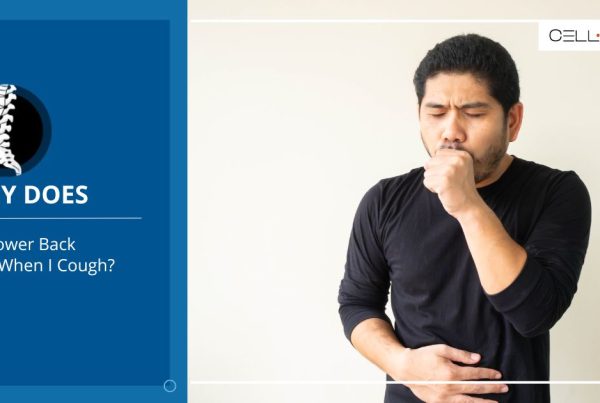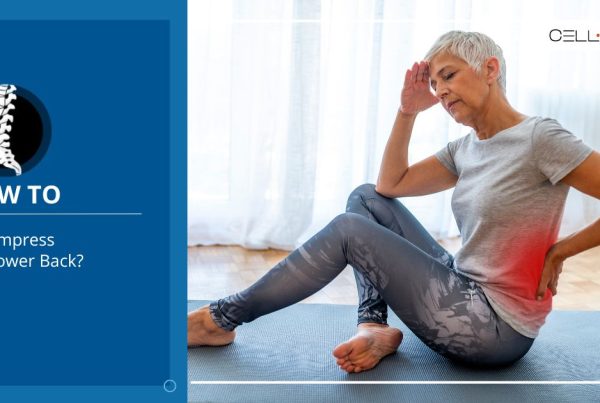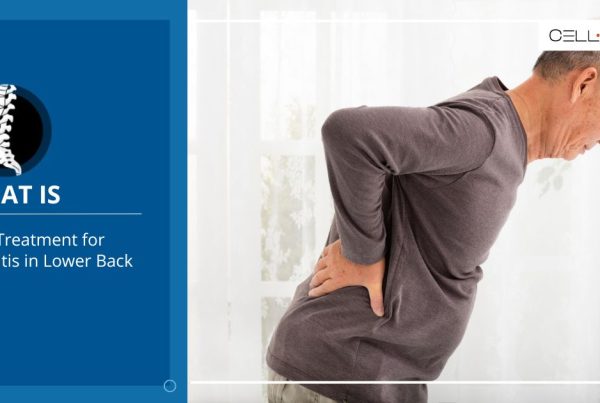Published on: November 19, 2024 | Updated on: January 18, 2025
The association between back pain and constipation remains the least discussed, as numerous other problems cause lower back pain. However, chronic constipation can cause lower back pain.
Fecal impaction from constant constipation puts pressure on the nerves in the lower back, strains the back muscles, and causes pain.
The pressure from fecal impaction also causes lower back muscle spasms that interfere with the autonomic nerves, which control intestinal actions, including bowel movement.
Lower back pain is one of the worst symptoms of constipation because it affects the quality of life. It becomes difficult to carry out daily activities with back pain. This makes it essential to learn how to relieve lower back pain from constipation.
What Is the Link Between Constipation and Lower Back Pain?
The digestive tract occupies a large space in the body with many vital structures around it. Any problem with the digestive tract can cause referred pain or pain that radiates to the lower back.
Constipation causes lower back pain due to the blockage of fecal waste in the lower intestines. The pain from the lower intestines radiates to the back.
Other times, the large amount of stool in your colon puts pressure on the nerves in the lower back. When this happens, you experience a dull, aching pain due to the pressure. This pain becomes worse if you don’t have any bowel movements.
The food you eat keeps accumulating and becomes impacted. Another link between back pain and constipation is that the strained lower back muscles affect bowel movement.
When the muscles of the lower back contract tightly, they affect the nerves controlling our bowel movement. Thus, muscular contraction and spasms affect the digestive tract and lower back.
Symptoms of Lower Back Pain Due to Constipation
Fecal impaction is when a hard lump of stool accumulates in your rectum. The pain from the abdomen extends to the lower back. Here are the common symptoms of fecal impaction.
- Abdominal pain
- Bloating
- Cramping
- Urinary changes
- Fever
- Rectal bleeding
- Radiating pain in the lower back
How to Relieve Lower Back Pain From Constipation?
When you experience lower back pain and constipation at the same time, it could be due to a single underlying medical condition or the side effects of certain medicines.
Before you seek medical treatment, try some of the following home remedies to relieve lower back pain and constipation.
Increase Water Consumption
Constipation becomes worse when your body doesn’t have enough fluids to add bulk to the stool. Increased water and fluid intake eases bowel movement by softening the stool.
You should drink plenty of water and juices. Apple cider and prune juice also reduce dehydration and promote bowel movements.
Exercise Regularly
Physical activity is important for proper circulation and bowel movement. When you experience lower back pain from severe constipation, focus on low-impact exercises to relieve muscular tension in the back.
When fecal impaction puts pressure on the nerves, the nerve endings in the back send pain signals, causing discomfort.
Relieving the pressure on the nerves and muscle tightness through exercises will relieve lower back pain. Studies also conclude that exercising is effective for treating constipation.
Add More Fiber to Your Diet
Our body does not digest fiber. The fiber we consume from the food adds bulk to the stool, aiding bowel movement. The increase of bulk matter in the intestines makes the stool move easily along the digestive tract.
A diet high in processed foods, fried foods, and sugary snacks contributes to constipation because it has a low fiber content.
Whole grains, fresh vegetables, fruits, and legumes are fiber-rich foods that add bulk to the stool, promoting bowel movements.
Use Warm Compresses and Ice Packs
Warm compresses and ice packs relieve muscle tension in the lower back. Applying an ice pack to the inflamed muscles numbs the area, providing pain relief.
On the other hand, warm compresses improve the blood flow to the muscles, which provides pain relief by reducing muscle tension. It’s best to use hot and cold compresses alternatively to relieve muscle tension in the lower back.
Practice Regular Bowel Movement Schedule
You should always avoid the temptation to fight the urge to pass stool because stool accumulation in the intestines causes constipation.
The colon absorbs water from the stool, which hardens the lump and makes it difficult to pass stool. This excess water absorption in the intestines causes constipation.
The accumulated lump in the lower abdomen presses on the nerves. As a result, the pain radiates to the lower back. If you’ve been experiencing frequent fecal impaction and you wonder how to relieve lower back pain from constipation, the best strategy is to focus on regular bowel movements.
Take Stool Softeners
Suppositories, laxatives, and natural stool softeners relieve constipation by making it easier to pass stool.
You can also take anti-inflammatory drugs to reduce inflammation and swelling from chronic constipation. Treating constipation relieves lower back pain that results from fecal impaction.
If treating constipation does not reduce lower back pain, the chances are that an underlying problem is causing back pain.
How to Prevent Constipation?
Simple changes in dietary habits and some lifestyle practices go a long way in preventing constipation.
Dehydration is one of the primary causes of constipation. Try to drink about eight glasses of water every day. The fluid intake promotes bowel movement.
Besides drinking water, you should also eat fiber-rich foods such as whole grains, fruits, vegetables, and legumes. These foods have a high content of fiber that adds bulk to the stool.
Managing stress levels also prevents constipation. Besides this, focus on low-impact exercises that not only reduce lower back pain but also relieve constipation.
These minor changes in your lifestyle keep the digestive tract healthy. A healthy digestive tract prevents constipation and associated back pain.
Wrap Up
Try out the best home remedies for relieving constipation and treating lower back pain. However, if these home remedies treat one problem and not the other, there is a chance that there may be an underlying cause.
Talk to your doctor to diagnose underlying conditions. This will give you a better idea about what’s happening with your body.
You should also look for symptoms such as rectal bleeding, urinary changes, and lower abdominal pain as they impact the quality of life.
If these problems interfere with daily activities, you should seek medical treatment right away to get your bowel movement on track.
Sources
Footnotes
- Arai YC, Shiro Y, Funak Y, Kasugaii K, Omichi Y, Sakurai H, et al. The association between constipation or stool consistency and pain severity in patients with chronic pain. Anesth Pain Med. 2018 Aug 11;8(4)
- Obokhare I. Fecal Impaction: A Cause for Concern? Clin Colon Rectal Surg. 2012 Mar;25(1):53-58.
- Wilson PB. Associations between physical activity and constipation in adult Americans: Results from the National Health and Nutrition Examination Survey. Neurogastroenterol Motil. 2020 May;32(5)
- Gao R, Tao Y, Zhou C, Li J, Wang X, Chen L, Li F, Guo L. Exercise therapy in patients with constipation: a systematic review and meta-analysis of randomized controlled trials. Scand J Gastroenterol. 2019 Feb;54(2):169-177.
- Liu LWC. Chronic constipation: Current treatment options. Can J Gastroenterol. 2011 Oct;25(Suppl B):22B–28B.
References
- Chronic Constipation: Facts vs. Myths. WebMD. Accessed 09/12/2024.
- Fecal Impaction. Cleveland Clinic. Accessed 09/12/2024.
- Referred Pain. ScienceDirect. Accessed 09/12/2024.
- Is Constipation Causing Your Back Pain? Cleveland Clinic. Accessed 09/12/2024.
- Constipation & Lower Back Pain. Stridewell. Accessed 09/12/2024.
- How Drinking Fluids Can Help You Manage Constipation. WebMD. Accessed 09/12/2024.
- Dietary Fiber: Essential for a Healthy Diet. Mayo Clinic. Accessed 09/12/2024.
- When Should I Use Heat or Ice for Pain? WebMD. Accessed 09/12/2024.
- Bowel Retraining. Healthline. Accessed 09/12/2024.
- How is Stress Linked with Constipation? Medical News Today. Accessed 09/12/2024.
CELLAXYS does not offer Stem Cell Therapy as a cure for any medical condition. No statements or treatments presented by Cellaxys have been evaluated or approved by the Food and Drug Administration (FDA). This site contains no medical advice. All statements and opinions are provided for educational and informational purposes only.
Dr Pejman Bady
Author
Dr. Pejman Bady began his career over 20 years ago in Family/Emergency Medicine, working in fast-paced emergency departments in Nevada and Kansas. He has served the people of Las Vegas as a physician for over two decades. Throughout this time, he has been met with much acclaim and is now the head of Emergency Medical Services in Nye County, Nevada. More about the doctor on this page.
Dr Pouya Mohajer
Contributor
Pouya Mohajer, M.D. is the Director of Spine and Interventional Medicine for CELLAXYS: Age, Regenerative, and Interventional Medicine Centers. He has over 20 years of experience in pain management, perioperative medicine, and anesthesiology. Dr. Mohajer founded and is the Medical Director of Southern Nevada Pain Specialists and PRIMMED Clinics. He has dedicated his career to surgical innovation and scientific advancement. More about the doctor on this page.









